Yoruba Nation Movement: A New Call for Independence
The Yoruba Nation Movement, led by influential figures like Sunday Igboho and Professor Adebanji Akintoye, is reigniting their quest for independence. In a determined move, they have submitted a petition directly to the UK Prime Minister, Keir Starmer, urging him to consider and support the establishment of a Yoruba Nation. The group longs for a territory where the indigenous Yoruba people can govern themselves and claim ownership of their cultural heritage. This development marks a significant moment in the long-standing call for autonomy for the Yoruba people, who have historically felt marginalized within the Nigerian national framework.
Sunday Igboho, a name widely recognized among the Yoruba people for his advocacy and activism, was accompanied by several prominent figures during the submission of the petition. Among them were Prophet Ologunoluwa, a Diaspora Youth Leader who has been vocal in supporting the Yoruba cause from abroad; Fatai Ogunribido, the Vice President of Ifeladun Apapo, who has rallied grassroots support; Alhaja Adeyeye, serving as the General Secretary of Yoruba World Media, ensuring worldwide broadcast of their plea; and Paul Odebiyi, an active Member of the Yoruba Nation Movement. Together, they represent a multi-faceted approach to garnering both local and international support.
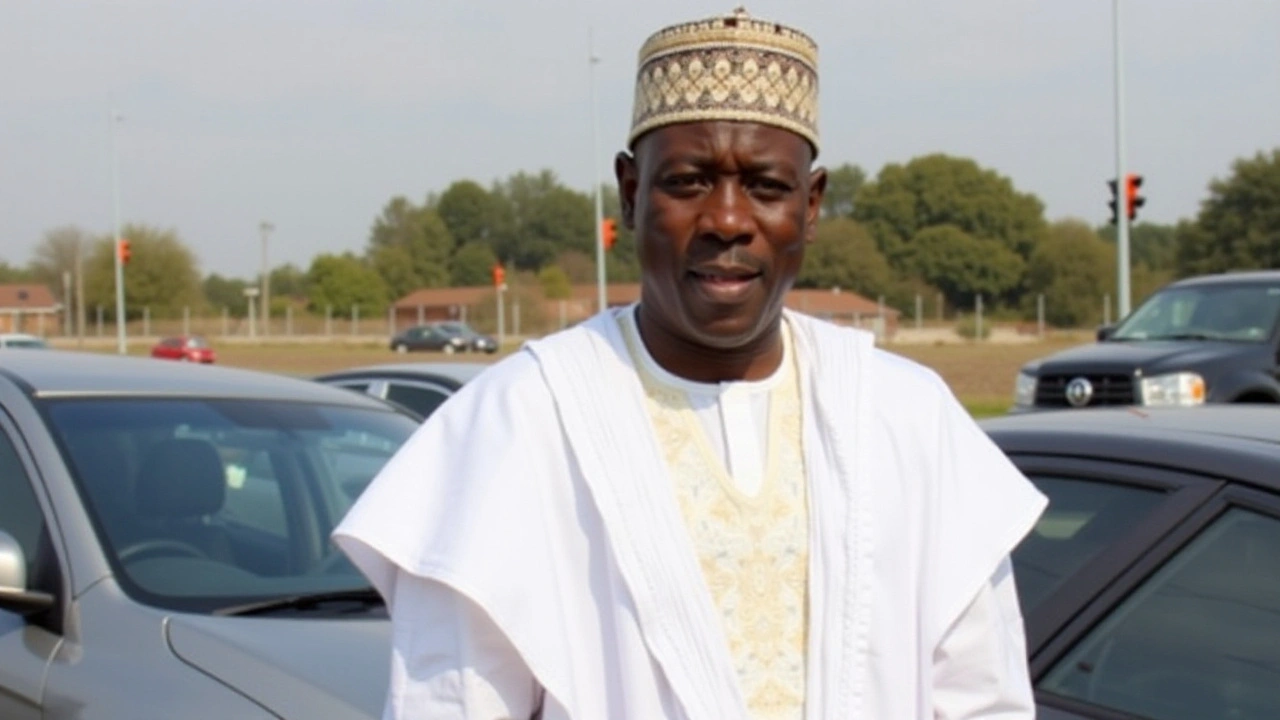
Historical Context and Current Dynamics
The Yoruba Nation's quest for self-determination is not a new narrative. Its roots can be traced back to colonial times when different ethnic groups were lumped together to form what is now Nigeria. These groups, each with their distinct cultures, languages, and political aspirations, have at times struggled to maintain a harmonious political structure. The Yoruba people, based predominantly in the southwestern region of Nigeria, have a rich cultural heritage and have consistently sought increased autonomy to preserve their identity.
Sunday Igboho and Professor Akintoye have consistently been at the forefront of this agitation, advocating for lawful and peaceful means to achieve their aims. Their approach emphasizes dialogue and petitioning as opposed to violence, in the belief that such tactics will yield productive outcomes. Despite facing criticisms and challenges from both local and federal authorities, their resolve remains unshaken. The movement's combination of youthful energy and seasoned leadership signifies a strategic blend aimed at sustaining momentum regardless of the odds.
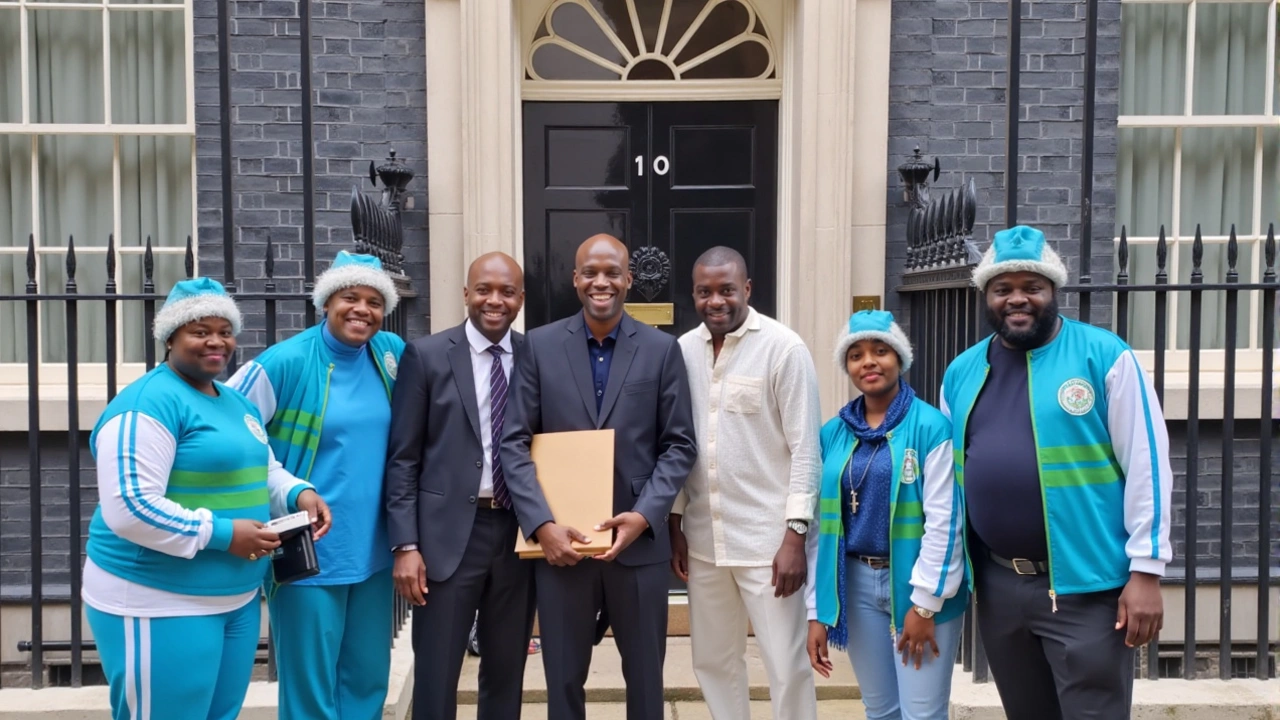
Petition to 10 Downing Street: Key Turning Point?
The delivery of the petition at 10 Downing Street is seen as a pivotal moment for the Yoruba Nation movement. It signifies a strategic shift towards international diplomacy, recognizing the potential influence of the UK in international affairs. The time chosen for this symbolic gesture – exactly 14:00 hrs – suggests meticulous planning and an understanding of the gravity of their mission. Through this act, they hope to bring global attention to their cause, appealing not only to the UK but to other nations that could influence Nigeria's stance on regional self-determination.
The UK's relationship with former colonies remains complex and multifaceted. The Yoruba Nation movement's appeal to the UK stems partially from historical ties and a belief that the UK might leverage its diplomatic platforms to champion the cause of marginalized groups seeking self-governance. While the response from the UK government remains to be seen, the appeal places pressure on the UK to clarify its current foreign policy stance regarding secessionist movements worldwide.
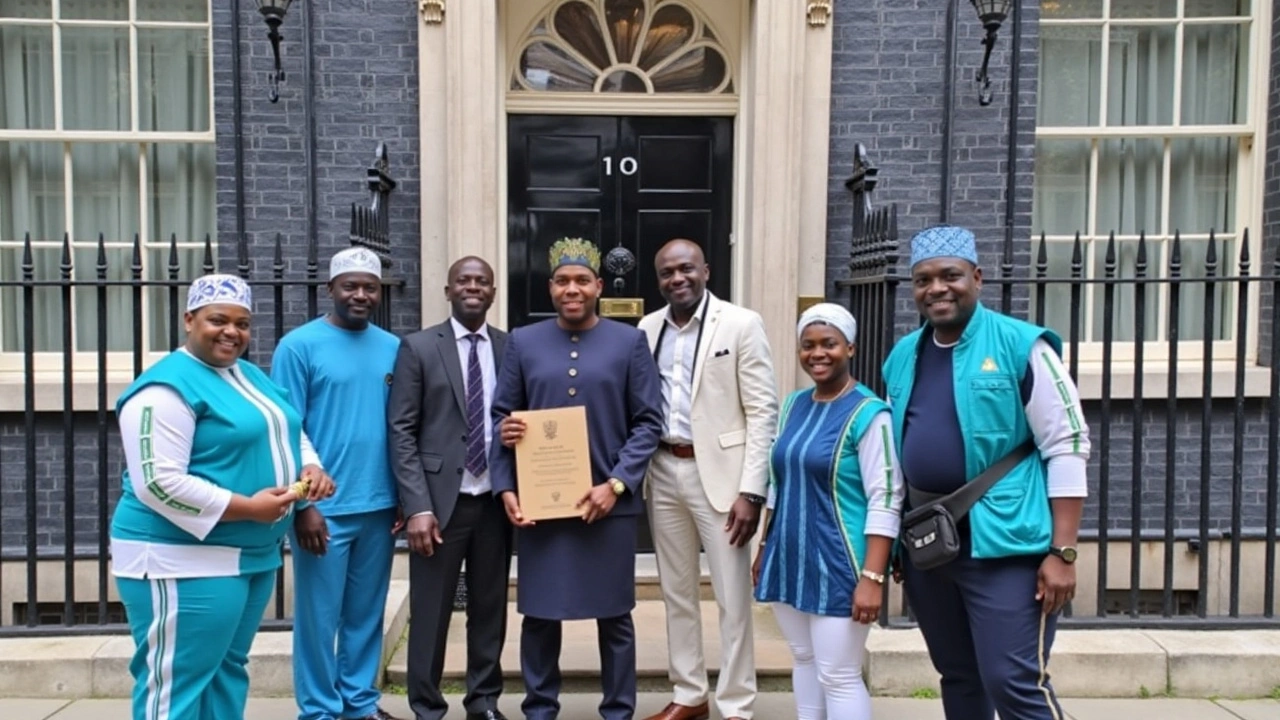
Implications and Future Aspirations
The dreams of the Yoruba people and the practicalities of establishing a new nation are fraught with significant challenges. Questions about viability, international recognition, regional stability, and economic sustainability must be navigated. Nevertheless, the movement's advocates argue that these challenges are surmountable when weighed against the cultural and political freedom offered by self-determination.
Looking forward, the Yoruba Nation movement aims to continue building momentum both at home and abroad. By engaging with international audiences, they hope to create a conducive atmosphere for discussions that could lead to a peaceful and organized separation from Nigeria. Their hope lies in a future where the Yoruba people can exercise their right to self-determination, govern autonomously, and preserve their rich cultural heritage for generations to come.
In conclusion, Sunday Igboho's delivery of the petition to the UK Prime Minister marks a significant chapter in the Yoruba Nation movement's push for independence. While it remains uncertain how international dynamics will play out, the effort underscores a deep-rooted yearning for autonomy among the Yoruba people. The world watches as this quest for self-determination unfolds, with the potential to reshape not just the map of Nigeria, but the nature of ethnic and regional aspirations across the globe.
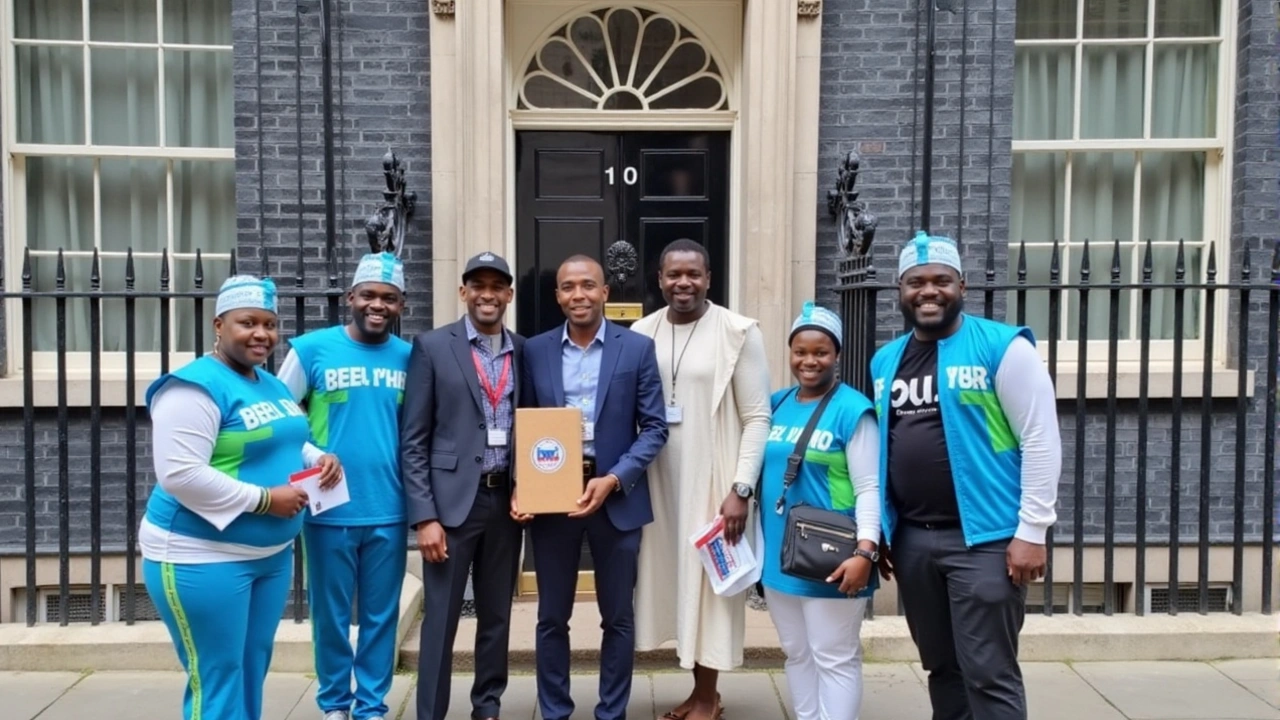




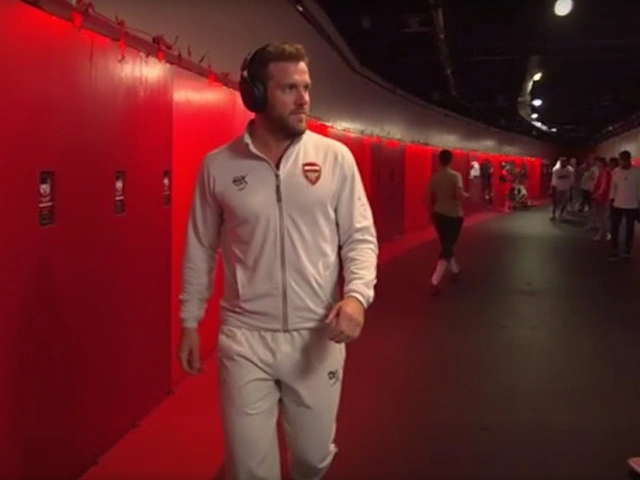
Giacinta Pace
October 14, 2024 AT 09:09It's great to see the Yoruba community rallying together and sharing their hopes for a brighter future. The passion they show can inspire many people around the world to stand up for their culture.
darryl archer
October 17, 2024 AT 06:40One must acknowledge teh historical ties between the Yoruba people and the United Kingdom, however a petition alone does not garantuee legal recognition.
Dina DiCicco
October 20, 2024 AT 06:53The Yoruba Nation Movement is not simply a fleeting trend; it is a deep‑rooted quest for identity and sovereignty.
Their decision to approach the UK government demonstrates a strategic understanding of diplomatic avenues.
While some critics may dismiss the petition as naïve, the reality is that international pressure can shift political calculations.
The diaspora’s involvement adds legitimacy, showing that the cause resonates beyond Nigeria’s borders.
Moreover, the economic potential of a self‑governed Yoruba region cannot be ignored, as it boasts a vibrant commercial sector.
This potential is often highlighted by scholars who argue that a stable, autonomous region could attract foreign investment.
Neglecting these facts would be a grave oversight, and the advocates deserve to be heard on the global stage.
The appeal to Prime Minister Starmer is a bold move that underscores the seriousness of their intentions.
It also signals to other former colonial powers that historical responsibilities still matter today.
Critics who label the movement as radical are overlooking the peaceful methods emphasized by leaders like Igboho.
The emphasis on dialogue and legal channels reflects a mature approach that should be commended.
In addition, the cultural heritage of the Yoruba people, from music to philosophy, enriches humanity as a whole.
Protecting that heritage through self‑determination is a rightful aspiration.
Therefore, the international community should monitor this development with an open mind and a willingness to engage. 🌍💪🏾🗣️
Kasey DellaPenna
October 23, 2024 AT 07:06Totally feel the vibe you mentioned the Yoruba push really shows what community spirit can do lets keep that energy spreading and support any peaceful effort to amplify their voice
We can all share this story and keep the momentum rolling
Gayleen Lowrie
October 26, 2024 AT 07:20It’s important to remember that constructive dialogue helps build bridges and the more people learn about the Yoruba history the better informed the discussion becomes. Providing resources and facts can empower others to understand the nuances of self‑determination without resorting to sensationalism.
Wesley Nakamatsu
October 29, 2024 AT 06:33While the enthusiasm of the movement is noted, one must also consider the broader implications for national unity and territorial integrity, especially in a continent where borders are already fragile. The pursuit of secessionist agendas can set a precedent that undermines the stability of existing states, a concern that should not be dismissed lightly.